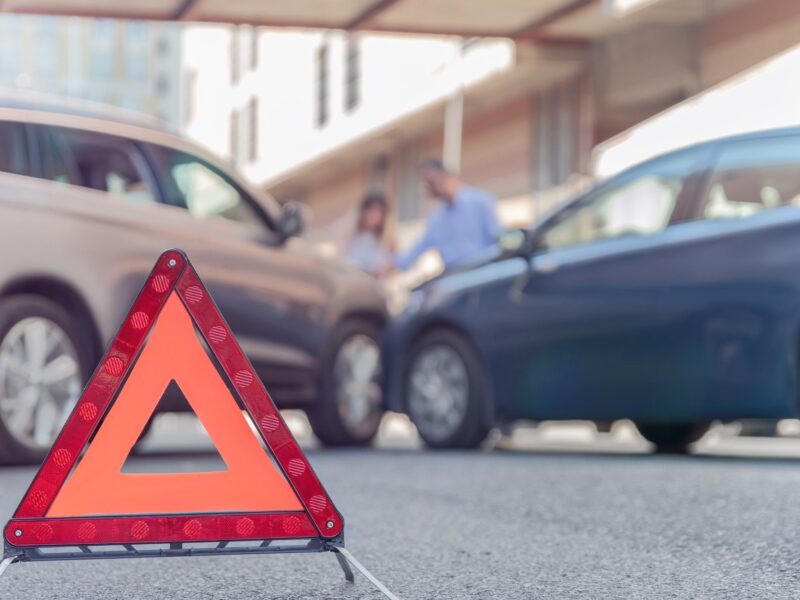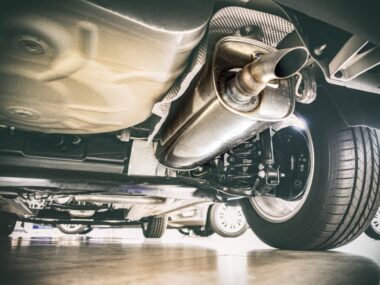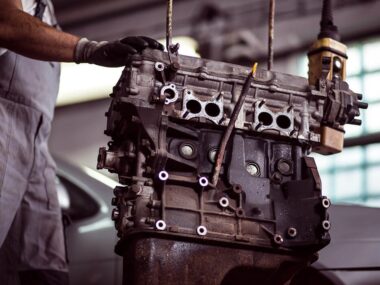Why New Car Replacement Insurance Could Be a Game-Changer for Your New Ride
New Car Replacement Insurance is a specialized type of coverage designed to protect new car owners from the financial fallout of a total loss. Unlike standard auto insurance, which compensates based on the actual cash value of your car at the time of loss, New Car Replacement Insurance ensures that you receive a brand-new vehicle of the same make and model, regardless of depreciation.
This is particularly advantageous in the early years of ownership when a car’s value drops significantly. By bridging the gap between your car’s depreciated value and the cost of a new one, this insurance provides peace of mind and financial security if your new car is stolen or totaled.
However, New Car Replacement Insurance does come with its drawbacks. The coverage typically results in higher premiums compared to standard policies, reflecting the added protection and peace of mind it provides.
Additionally, it’s usually available only for a limited period-often within the first year or two after purchasing a new vehicle-and may not cover certain scenarios like partial damage or causes of loss due to negligence.
Before opting for New Car Replacement Insurance, it’s important to evaluate whether the extra cost aligns with your financial situation and risk factors, ensuring that it offers real value for your specific needs.
What Is New Car Replacement Insurance?
At its core, New Car Replacement Insurance is a special type of auto insurance that ensures you won’t suffer a significant financial loss if your new car is totaled or stolen. Traditional auto insurance policies usually only cover the actual cash value of your car at the time of the loss, which means depreciation can hit you hard. This is where New Car Replacement Insurance steps in.
With New Car Replacement Insurance, your insurer promises to replace your totaled or stolen car with a brand-new car of the same make and model, regardless of how much your vehicle has depreciated since you drove it off the lot.
Essentially, you’re protected from the financial burden of having to replace your new car with a used one or covering the gap between your car’s actual cash value and the cost of a new vehicle.
How Does New Car Replacement Insurance Work?
Let’s say you buy a new car for $35,000. A few months later, you’re involved in a serious accident that totals your car. In a standard auto insurance scenario, your insurer would calculate the actual cash value of your car, which might have depreciated to $30,000. You’d then be responsible for either finding a comparable used car or covering the difference to buy a new one.
However, if you have New Car Replacement Insurance, your insurer would instead pay out the full cost to replace your vehicle with a new one, typically the same make and model, even if the price has risen since your initial purchase. In essence, you get a brand-new car, without any out-of-pocket costs beyond your deductible.
What Does New Car Replacement Insurance Cover?
New Car Replacement Insurance is designed to cover specific situations, so it’s crucial to understand its scope. Here’s what’s typically covered:
- Total Loss: If your car is totaled due to a collision, fire or another covered peril, New Car Replacement Insurance will cover the cost to replace it with a new vehicle of the same make and model.
- Theft: If your car is stolen and not recovered, New Car Replacement Insurance steps in to replace it with a brand-new one, ensuring you’re not left without a vehicle.
- Comprehensive Coverage Events: Events like natural disasters (e.g., floods, hurricanes) or vandalism that result in your car being a total loss are also generally covered.
This insurance is especially valuable during the first few years of ownership, a period when cars typically depreciate the most. During these early years, your car’s value can drop by thousands, which makes the financial protection provided by New Car Replacement Insurance particularly beneficial.
What Does New Car Replacement Insurance Not Cover?
While New Car Replacement Insurance offers comprehensive protection in certain scenarios, there are limits to what it covers:
- Partial Damage: If your car is damaged but not totaled, New Car Replacement Insurance doesn’t apply. Your standard collision or comprehensive coverage would handle the repairs, but you wouldn’t be eligible for a brand-new vehicle.
- Older Vehicles: This coverage is generally only available for cars that are brand new or within the first year or two of ownership. If your car is older, you won’t be able to add New Car Replacement Insurance to your policy.
- Certain Causes of Loss: Not all causes of loss are covered. For example, intentional damage, driving under the influence or racing might not be covered under New Car Replacement Insurance, depending on your policy.
- Depreciation Cap: Some insurers may set a cap on the depreciation they’re willing to cover. This means that if your car has depreciated significantly, the insurer might not cover the full cost of a new car.
Pros of New Car Replacement Insurance
New Car Replacement Insurance can be a lifesaver in the right circumstances. Here are some of the biggest benefits:
- Financial Security: One of the primary advantages is the financial peace of mind it offers. With New Car Replacement Insurance, you’re protected from the steep depreciation that occurs as soon as you drive a new car off the lot.
- No Need to Compromise: If your car is totaled or stolen, you won’t have to settle for a used or cheaper car. You get a brand-new vehicle of the same make and model, ensuring you’re back on the road in a car that meets your expectations.
- Protection Against Market Price Increases: If the price of your car model increases after your purchase, you’re still covered. New Car Replacement Insurance ensures that you can replace your vehicle without worrying about market fluctuations.
- Ease of Mind in High-Risk Areas: If you live in an area prone to theft or natural disasters, New Car Replacement Insurance can offer added peace of mind. You know that if the worst happens, you won’t be left scrambling to replace your vehicle.
Cons of New Car Replacement Insurance
As with any insurance product, New Car Replacement Insurance isn’t without its downsides. Here are a few cons to consider:
- Higher Premiums: This type of coverage typically comes at a higher cost compared to standard auto insurance. You’re paying for the added protection of getting a brand-new car and that comes with a price tag.
- Limited Availability: Not all insurers offer New Car Replacement Insurance and those that do may have strict eligibility requirements, such as the age of your vehicle or the specific make and model.
- Depreciation Cap Limitations: As mentioned earlier, some policies might include a depreciation cap, meaning they won’t cover the full cost of a new car if your car’s value has dropped significantly.
- Not Always Necessary: If you have a large emergency fund or your car’s value hasn’t depreciated much, you might not need New Car Replacement Insurance. In some cases, the extra premium cost might outweigh the potential benefit.
Who Should Consider New Car Replacement Insurance?
Not everyone needs New Car Replacement Insurance, but it can be an excellent option for certain drivers.
Here are some scenarios where it might make sense:
- New Car Owners: If you’ve just purchased a new car, especially a high-value one, New Car Replacement Insurance can be a smart investment. The first few years of ownership are when your car’s value depreciates the most, making this coverage particularly valuable.
- Drivers in High-Risk Areas: If you live in an area where car theft is common or natural disasters are frequent, New Car Replacement Insurance can offer extra security. Knowing you won’t be left without a car in the event of a total loss can be worth the higher premium.
- Financially Conservative Drivers: If you prefer to avoid financial risk and want to ensure that you can replace your vehicle without dipping into your savings, New Car Replacement Insurance is worth considering. It offers a level of predictability in an otherwise unpredictable situation.
Is New Car Replacement Insurance Worth It?
The big question: is New Car Replacement Insurance worth the added cost? The answer, as with many insurance decisions, depends on your individual circumstances.
Here are a few factors to weigh:
- Car Value: Consider how quickly your car will depreciate. High-end luxury vehicles and certain other cars can lose value rapidly. In such cases, New Car Replacement Insurance might offer substantial benefits.
- Risk Factors: Think about where you live and drive. High crime areas or regions prone to natural disasters might justify the extra cost of New Car Replacement Insurance.
- Your Financial Situation: Evaluate your ability to absorb the cost of a new car out-of-pocket. If the thought of covering the gap between your car’s depreciated value and the cost of a new one makes you uneasy, this insurance might provide valuable peace of mind.
New Car Replacement Insurance is a valuable tool for those who want to protect their investment in a new vehicle. By covering the cost of a brand-new replacement in the event of a total loss, it eliminates the financial sting of depreciation and ensures you won’t have to settle for anything less than what you originally bought.
However, it’s important to carefully weigh the pros and cons, consider your specific circumstances and shop around to find the best policy if you decide this coverage is right for you. While New Car Replacement Insurance comes at a higher premium, the peace of mind it provides can be well worth the investment, especially in those first critical years of owning a new car.
Whether you’re a cautious driver or just want to ensure that you’re fully covered no matter what, New Car Replacement Insurance offers an extra layer of protection that can make all the difference when the unexpected happens.



